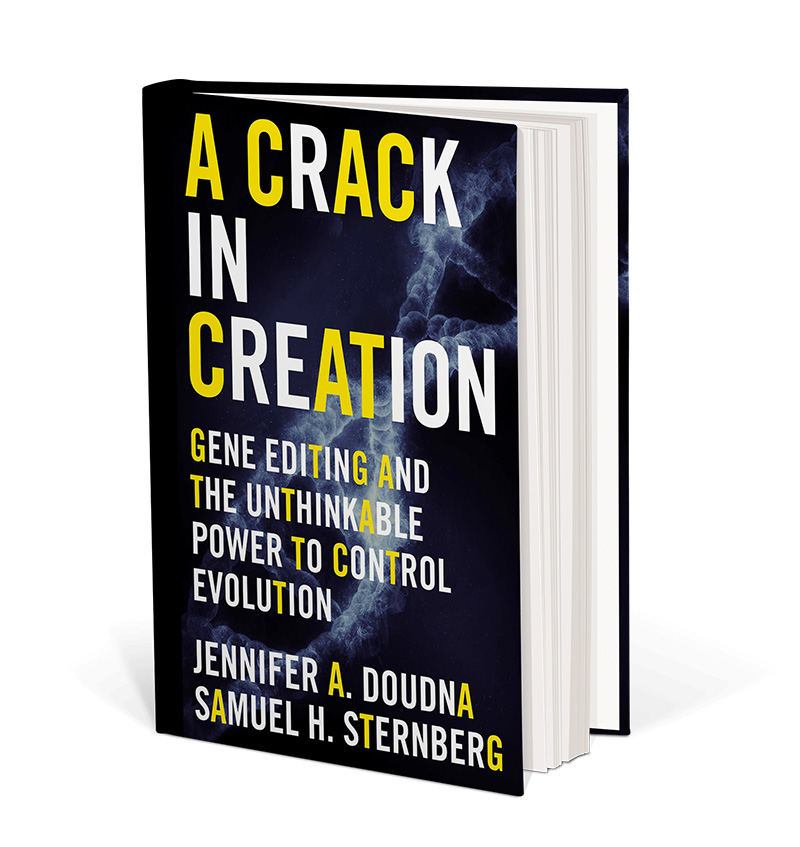
A Crack in Creation: Gene Editing and the Unthinkable Power to Control Evolution
by Jennifer A. Doudna and Samuel H. Sternberg
Boston: Houghton Mifflin Harcourt, 2017
A Crack in Creation discusses the origin and impact of the CRISPR-Cas9 gene-editing technology co-invented by UC Berkeley biologist Jennifer Doudna. Hailed as the scientific breakthrough of the century, CRISPR-Cas9 is a technology that can change the very way we live in a single generation and reshape our world in unimaginable ways–offering potential cures for diseases and solutions to world hunger while also raising a series of ethical questions about the consequences of being able to change our DNA.
In their book, Doudna and fellow researcher Samuel Sternberg tell the compelling story of this discovery and wrestle with those questions about what we will do with this new technology that gives us the power to reshape our evolution.
There are many compelling reasons for why this is a worthy contribution for any booklist, but for Berkeley the justification is even richer. UC Berkeley has been ground zero for this entire technology, with contributions from others around the world. Secondly, the ramifications of this technology are so widespread that only a campus with broad excellence in all areas is adequate to engage the range of implications that this technology offers.
(Visit UC Berkeley’s #InThisGen pages for much more about Professor Doudna’s work on CRISPR.)
This book is part of the 2017 Berkeley Summer Reading List. Stay tuned for more weekly posts!